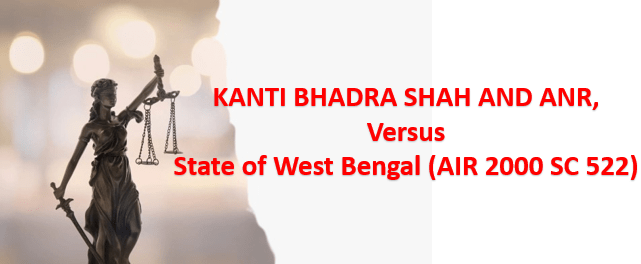
BACKGROUND FACTS:
This case arises out of a complaint registered with the Burra Bazar Police Station in Calcutta.
An investigation was conducted by the police, and a chargesheet was filed before the Chief
Metropolitan Magistrate’s Court at Calcutta under sections 454, 380, and 120B of the Indian
Penal Code. In addition to it, the procedure started, and charges were framed under the same
sections by the court. Also, the court dismissed their petition to get the petitioners discharged;
subsequently, the appellants approached the Honourable High Court, seeking the quashing of
the charges framed against them.
ANALYSIS OF METROPOLITAN MAGISTRATE AND HIGH COURT ORDER
The learned metropolitan magistrate has written a short order considering the chargesheet
filed by the investigating officer for sections 454, 380, and 120B of the Indian penal code.
The learned single judge of the High Court heard the matter, and the order of the
metropolitan court was set aside on the grounds that the learned metropolitan judge had not
taken the chargesheet and other papers into consideration and had not applied his mind to the
facts and circumstances of the case.
In his order, he expressed his dissatisfaction and said that the framing of the charge is based
upon the police report and other relevant documents, and at this stage, the court must abstain
from writing a wide and speaking order disclosing the reasoning behind such an order as far
as the framing of the charge is concerned. If he, after hearing both parties and perusing the
police report and material evidence, is of the opinion that there is a strong presumption
behind the accused’s committing such an offence, he may frame the charges thereon.
A learned single judge placed forward the idea that the framing of charges itself is a prima
facie order upon which the court has formed an opinion that the accused may have committed
such an act. If, in any case, the police report and evidence on record do not disclose any case,
then the court may freely discharge the person in concern. In his order, he found that the trial
court has not considered the police report and other evidence to satisfy himself as to whether
charges are liable to be framed or not.
SUPREME COURT’S REASONING
The Honourable Supreme Court took cognizance of the matter arising out of an appeal, as the
appellants had approached the high court but could not seek any efficient remedy from the
court. Hence, the Supreme Court dismissed the appeal after making a few crucial
observations.
It was placed with strict reliance upon the reading and language of Section 239 and Section
240 of the Code of Criminal Procedure, which provides provisions for magistrates to frame
charges based on chargesheets under Section 173 and police reports. Section 239 provides
that if the magistrate, after examining the police report under Section 173, opines that there is
no such ground for charges, he may record the reasons and discharge the accused, but if
contrary findings are determined, he shall frame the charges as per Section 240 of the code.
He also considered Section 245 which provides for the framing of charges based on the
court’s opinion and such charges if not opposed.
It was observed that there is no legal necessity to record reasons for the charge framing, so
why should already burdened courts bear more load upon them? He further highlights the
need to take measures to speed up court procedures. He is concerned about lower courts
writing multiple pages even in interlocutory orders; he further guides courts to not write such
orders and to touch on more issues in orders while granting bail specifically for Section 37 of
the NDPS Act.
At this juncture in the perusal of this timeline, the learned lower court magistrate chose to
frame the charges, and when the accused moved to the high court for quashing the charges,
the high court may for once have considered the charges before quashing. In this case, the
high court quashed the charges without stating any reason; he just directed the magistrate to
reconsider the charges. This direction seems to repeat the entire procedure of the lower court.
In this position, the supreme court did not set the order aside as it was not challenged by the
state, so it left the matter for the consideration of the trial court, and hence the supreme court
dismissed the appeal.
CONCLUSIONS:
On perusal of the case in hand, it appears that it is necessary for the courts to follow the law
as written. The Supreme Court, though it did not discard the order of the High Court, made it
clear that while quashing charges, the reasons must be recorded, and sending the same
proposition for reconsideration by the trial court is nothing but overburdening already
burdened courts. It could be appreciated when collective efforts to carry out the procedures of
the court are carried out. This judgment, though binding on all lower courts, also carries an
academic value innate.
RESOURCES:
- indiankanoon.com
- scconline.com
written by
Swarnim Tripathi Ballb (2nd year) Lloyd School of Law




0 Comments